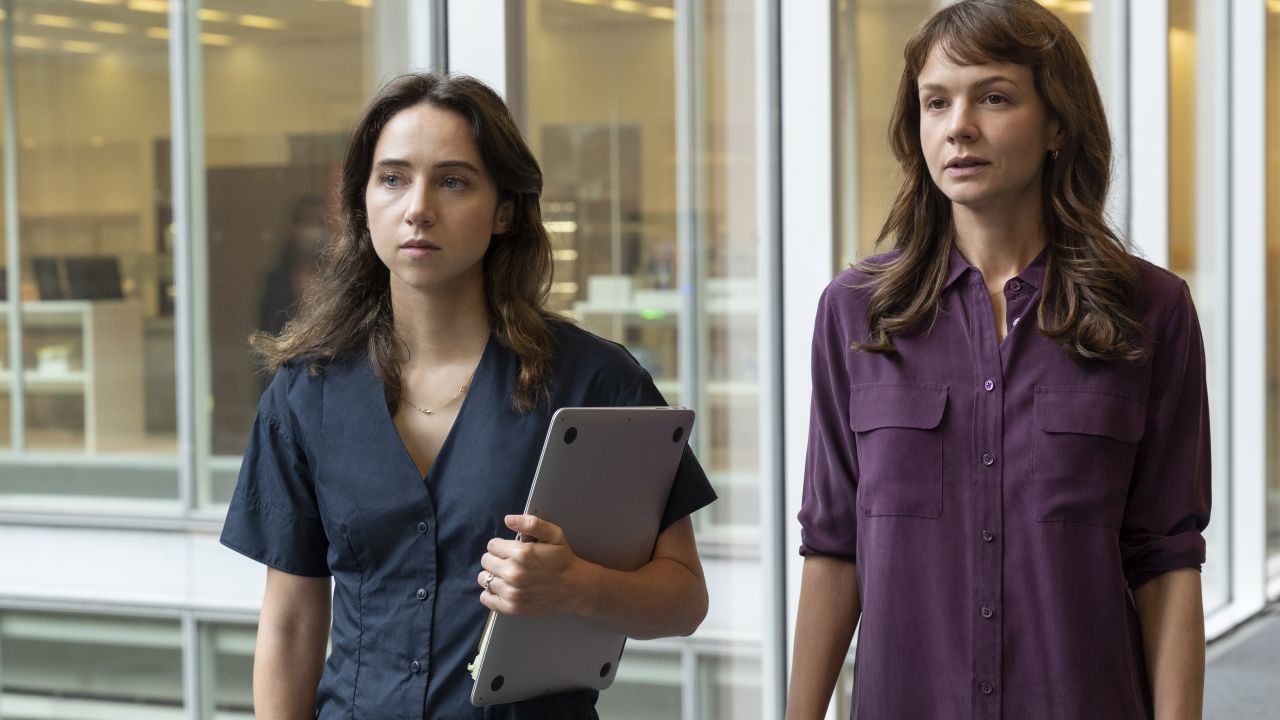The hard work of journalism doesn’t always readily translate to the screen, a problem magnified as doors slammed in faces has been supplanted by cellphone hang-ups and ignored texts. “She Said” nevertheless joins a long tradition of movies about dogged reporters exposing injustice, and in this case helping spawn a sweeping movement.
The film is adapted from the book by New York Times reporters Megan Twohey and Jodi Kantor, which might explain why the work of Ronan Farrow is mentioned but conspicuously shortchanged. Not only did Farrow get there first, but he had to grapple with NBC News management before eventually publishing in the New Yorker. It’s a pointed reminder to remember who’s telling the story.
Setting that aside, the heart of “She Said,” which begins with Twohey (Carey Mulligan) reporting on Donald Trump, centers on her collaboration with Kantor (Zoe Kazan) to lay bare the predatory behavior of Harvey Weinstein. While the reporters themselves don’t exhibit much personality, the movie hums with the fear and apprehension of the women who spoke up, often after much prodding, pleading and soul searching.
The Oscar-winning “Spotlight” is the most recent example of this particular genre, but “She Said” owes a stronger debt to “All the President’s Men,” only with a female-centric point of view as opposed to editorial meetings filled with White guys in white shirts. Both reporters are also shown trying to balance their home lives with the all-consuming nature of the job, illustrating all those weekend phone calls and plane flights cutting into family time.
Working from a screenplay by Rebecca Lenkiewicz, director Maria Schrader has opted not to show Weinstein other than a vague glimpse, but his presence is felt via actually audiotape and phone calls. The fact that his second trial currently underway in Los Angeles adds to the timeliness of the film’s release, but it’s an appropriate decision that keeps the focus squarely on the reporters and those victimized.

The latter list notably includes Ashley Judd, who portrays herself, and flashbacks showing the aftermath of the alleged assaults without venturing inside the room. Throughout, there’s a palpable sense of the way nondisclosure agreements, settlements and other means of coercion were used to silence potential accusers, allowing the Hollywood mogul to continue to act with impunity. (The film’s producers include Brad Pitt, who has spoken of confronting Weinstein back when he was dating Gwyneth Paltrow.)
There’s a dutiful quality to the storytelling that blunts the portrayal of the reporters, and “She Said” doesn’t bring much that’s distinctive to presenting the inner workings of the Times. Patricia Clarkson and Andre Braugher, as editors Rebecca Corbett and Dean Baquet, respectively, get mostly relegated to just telling the intrepid duo to keep reporting and trying to get someone to speak on the record over and over.
In a sense, the movie is another one of those titles that derives an outsized portion of its resonance from the closing crawl, offering a reminder of what the #MeToo movement has accomplished since Twohey and Kantor broke the Weinstein story in 2017.
At a time when journalism is often under siege, there’s value in displaying its noblest qualities and loftiest aspirations. Even with hiccups and quibbles, “She Said” achieves that central mission.
“She Said” premieres in US theaters on November 18. It’s rated R.




